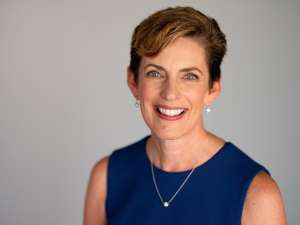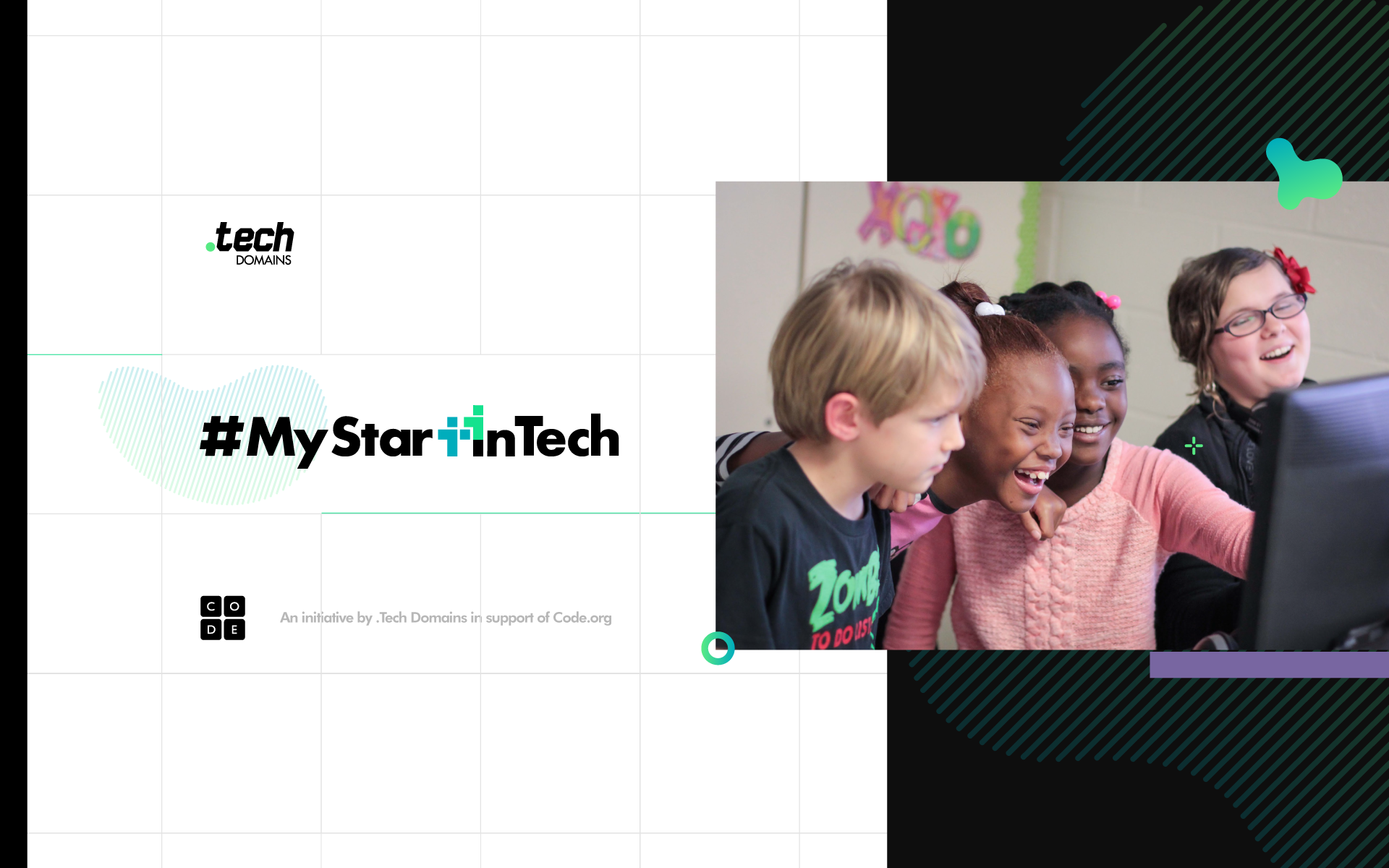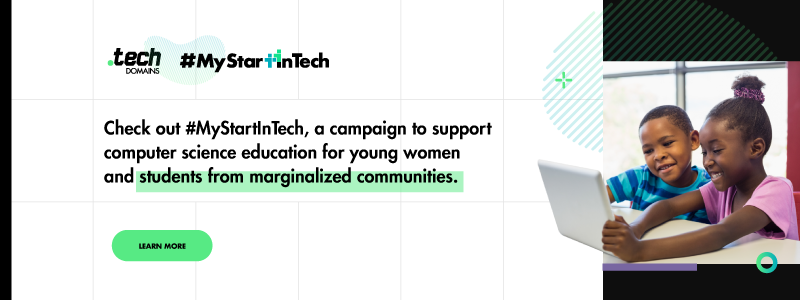The tech workforce in the US is not growing at an optimal pace. The number of schools offering computer science is not enough which is impacting the access of computer science to young women and students from marginalized communities.
The truth is that there are over 410,020 open computing jobs in the US but only 71,226 computer science students graduated into the tech workforce last year.
This is because only 47% of public high schools in the US offer computer science which deeply impacts its access to young women and students from marginalized communities.
To address this pressing issue, we have launched #MyStartInTech, a campaign dedicated to drawing attention to this cause and in turn, help widen access to computer science in schools.
As part of this campaign, we present the #MyStartInTech interview series where some of the esteemed tech entrepreneurs and professionals in the industry share details about their journey in tech. With this, we hope to draw attention to the infinite opportunities that will lay open if young women and students are given the opportunity to study computer science.
In this interview, Karen Catlin, Advocate for Inclusive Workplaces, Coach, Speaker, and Author talks about how she got her start in the tech world.
After spending 25 years building software products and serving as a Vice President of engineering at Macromedia and Adobe, Karen witnessed a sharp decline in the number of women working in tech. Frustrated but galvanized, she knew it was time to switch gears.
Today, Karen is a leadership coach and a highly acclaimed author and speaker on inclusive workplaces. She is the author of three books: “Better Allies: Everyday Actions to Create Inclusive, Engaging Workplaces,” “The Better Allies Approach to Hiring,” and “Present! A Techie’s Guide to Public Speaking”.

Let’s find out what she has to say!
When was your first interaction with Computer Science? What are your earliest memories of using a computer in school?
During my first week of college, I attended the introduction to computer science class. I remember walking into the large auditorium with my new friend Grace, who lived a few doors down from me in my dorm. As we settled into our seats, I noticed something different about this class than the others I had attended that week. Milling around near the professor on the stage were about a dozen students. They were joking with the professor and each other like they were old friends. Turns out that they were the teaching assistants (TA’s), which was an on-campus part-time job for students. Most of them had taken the class just the year before and loved it so much that they wanted to help the professor by being teaching assistants.
I also remember how unusual and fun the class was. The professor and the TA’s regularly did skits during the lectures, and the programming assignments were interesting. I was hooked!
What nudged you into taking up a career in technology?
When I was in high school, I remember talking to my dad about what I should study in college, and he gave me some great advice. He pointed out that since I loved crafting and making things, that I was good at math, and that I enjoyed solving puzzles, maybe I’d like to combine them all and major in this new field called Computer Science. He also pointed out how much money jobs in this field paid, which caught my attention. After all, I wanted to be able to support myself after college.
I said something like, “Sounds good, Computer Science it is!” But get this, I had never even touched a computer. (It was a long time ago.) Fortunately, I loved it and earned my bachelors in Computer Science. I went on to spend 25 years working in tech, building software products.
What is the importance of technology to you now and how does it impact your day-to-day life?
Today, I’m an author, a public speaker, and a leadership coach. I use technology every day to run my business, write and self-publish my books, communicate with clients, and deliver my keynotes. I can’t imagine a world without technology!
How important is it to increase access to computer science and technology to underrepresented communities and young women today?
The bottom line is that diversity is good for business. There are studies after studies showing that diverse teams build more innovative solutions, solve difficult problems more effectively, and deliver better financial results.
On engineering teams, we want a balance of gender, age, ethnicity, and other qualities to make sure the teams are approaching problems holistically and creating solutions that are going to meet the needs of all kinds of people. We need people from underrepresented groups to be part of the workforce that is solving the most pressing problems facing the world that can be addressed via technology.
What do you think about .Tech Domains taking up this cause?
I am supportive of any organization taking up this cause!


